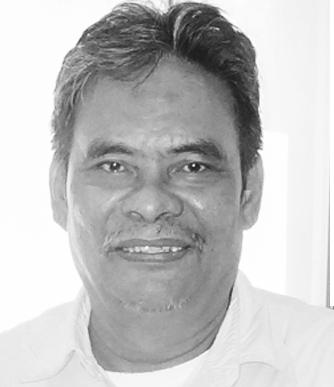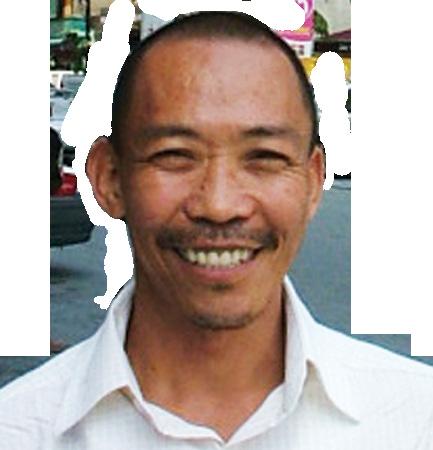
6 minute read
Are we on Track on Women Empowerment?
Righthere in Central Mindanao (now composed of BARMM and parts of Region XII), the women empowerment campaign has gained some foothold. Both government and private sector took pains to give their support to the United Nation’s Sustainable Development Goals which the world hopes to achieve by 2030. However, monitoring of these goals, especially Goal 5: Achieve gender equality and empower all women and girls, seem still far from being achieved.
According to the UN Report: “The social and economic fallout from the COVID-19 pandemic has made the situation even bleaker. Progress in many areas, including time spent on unpaid care and domestic work, decision-making regarding sexual and reproductive health, and gender-responsive budgeting, is falling behind.
Advertisement
Women’s health services, already poorly funded, have faced major disruptions. Violence against women remains endemic. And despite women’s leadership in responding to COVID-19, they still trail men in securing the decision-making positions they deserve.”
How do we fare in this region?
We have a number of women politicians who are usually the yardstick in measuring empowerment. In Maguindanao, we have Gov. Bai Mariam Mangundadatu and in North Cotabato, we have Gov. Emmylou Talino. The most important unit to provide health service the people in Maguindanao is headed by Dr. Elizabeth Samama Abpi. Blissfully, the Bangsamoro Transition Authority has a sizable group of women to represent the different areas, and the crucial agency to look after the concerns of non-Muslims migrants in the BARMM is headed by Dr. Susana Salvador Anayatin.
The private sector is also full of astute businesswomen who keep the economy afloat even during the pandemic. Dr. Cecilia Camello Barroga kept her St. Benedicts College running in partnership with our favorite writer Victoria Rabago Franco; the children of Cherry Lao and Lily Uy took care of the South Seas Dept. Store after the death of their parents, and Deborah TanAbing is busy with the franchise of McDonalds. The chancellor of MSU is also a woman - Dr. Hejira Sinsuat Limbona.
At least we are happy that there are women who can be tapped to help in motivating other women to contribute to growth and development in the area, with projects that advance gender equality and promote women empowerment. These women are decision makers and will be able to choose the right path for the region and the nation to grow. Hopefully, there will be more women involved especially in the BARMM, to implement and lead in activities that will help women feel that they too are important in development. Remember that the world is carried by both men and women. They should be allowed to contribute equal weight with men in carrying this increasingly difficult world. MC
Alleyes are again on the Bangsamoro. This after the Bangsamoro Transition Authority Parliament unanimously approved on March 08, 2023 on third and final reading Bangsamoro Autonomy Act No. 35, the Bangsamoro Electoral Code. Considered by many as a historical document, it prescribes the structural, functional, and procedural principles of the elections, referenda, and recall proceedings in the Bangsamoro Autonomous Region in Muslim Mindanao. It further paves the way for the conduct of what experts believe is a historical landmark that could pave the way for future electoral reforms in the country.
In a joint statement issued on the passage of the Electoral Code, BARMM Chief Minister Ahod Balawag “Al Haj Murad” Ebrahim, Department of National Defense OIC Secretary Carlito Galvez Jr., and Acting Presidential Adviser on Peace, Reconciliation and Unity Senior Undersecretary Isidro L. Purisima noted the unanimous enactment of the landmark document with 64 affirmative votes, 0 negative votes, and 0 abstentions saying it reflects the strong commitment and unity of the BTA to provide a law that would enable a peaceful and credible elections in 2025 and beyond. “The Electoral Code will allow democratic participation in the local and regional elections and will encourage the formation of genuinely principled political parties across the Bangsamoro, with guaranteed representations from women, youth, indigenous people, settler communities, traditional leaders, and the Ulama,” they said.
Introduced in Parliament as BTA Bill No. 29 in September 2022, it was referred to the Rules Committee which held a ten-day deliberation, examining the provisions in the proposed code line by line, prior to the code’s approval in plenary.
From October 2022 to January 2023, 12 public consultations were held in Manila, Basilan, Sulu, TawiTawi, Maguindanao, Lanao del Sur, Cotabato City, and the BARMM Special Geographic Area to ensure that all stakeholders were involved in the legislation process.
Leading the ceremonial signing of Bangsamoro Autonomy Act No. 35 along with BTA Speaker Atty. Pangalian Balindong, Chief Minister Ebrahim said the adoption of the electoral code is a major step towards the realization of the BTA’s commitment to establish a government deserving of the name “Bangsamoro” when
IT’S BANGSAMORO DAY today, March 18— the 55th reckoned from 1968 when 22 Moro trainees in a platoon were allegedly executed in Corregidor Island in the story that supposed lone survivor Jibin Arula told the Senate Blue Ribbon Committee. The Philippine Senate probed the incident at the instance of Cavite Governor Justiniano Montano and Senator Benigno Aquino Jr.
Some 30 years later, I had the loose free-time moments talking to the late Arula as I hosted him during his stays in Cotabato City in 1998 when he served as a peace consultant to the Southern Philippines Council for Peace and Development (SPCPD).—and took the stories straight from him.
Fr. Rogelio Tabuada, OMI, Chief-Executive-Officer
Eva Kimpo - Tan, Editor-in-Chief
Edwin O. Fernandez, News Editor

Gemma A. Peñaflor, Administration and Marketing Executive
Julito P. Torres, Circulation Officer
Karl John B. Daniel, Graphic-Layout Artist
COTABATO CITY / ARMM CORRESPONDENTS
John M. Unson, Ferdinandh B. Cabrera, Charlie C. Señase
Nash B. Maulana
NORTH / SOUTH COTABATO CORRESPONDENTS
Williamor Magbanua, Romer “Bong” Sarmiento, Roel Osano & Drema Quitayen Bravo CARTOONIST

Lourd Jim Diazon
At that time, I could almost confront my mentor, UP Prof. Arnold Molina Azurin who raised in his book (Beyond the Cult of Dissidence…) the “myth” of what has since been known as the “Jabidah Massacre.” Such is the other side of the story told and held for decades. In our conversations, Arula presumed that there were similar executions of his fellow trainees ahead of his batch (led to Corregidor through the Malinta Tunnel) but which, of course, he never saw.
For instance, Philippine Free Press writer Quijano de Manila who went to Sulu with Aquino told his story much different from Arula’s narratives, including Aquino meeting the trainees while disembarking from a naval vessel at the Jolo port, and the late senator had also interviewed their families.

I was impressed by Arula’s photographic memory of incidents, names, dates and approximate time things happened. One of the names he mentioned was a surname very familiar to me—and I do not know if a former schoolmate with the same family name, having migrated to Malaysia with his family, would somehow be anything of relevance for a fact.
The challenge to the Bangsamoro Commission on the Review of Moro History on the aspect of a Jabidah chapter will be to dig stenographic notes they took the oath of moral governance at the beginning of the transition period and their commitment “to enact an electoral code that would help pave the way for more democratic elections in the region, in which genuinely moral political parties would be able to participate.” and journals of the proceedings of the probe in the Senate Blue Ribbon Committee—from March to December 1968, as well as news story files of old edition copies from the libraries of the Manila Times, the Manila Bulletin, and of the Philippine Free Press.
The joint statement issued by Chief Minister Ebrahim, Secretary Galvez, and Senior Undersecretary Purisima said the Bangsamoro Electoral Code will allow democratic participation in the local and regional elections and will encourage the formation of genuinely principled political parties across the Bangsamoro, with guaranteed representations from women, youth, indigenous people, settler communities, traditional leaders, and the Ulama. They added that it also introduced other innovative provisions in the parliamentary electoral system with rules on changing political party affiliations, coalition-building, regional party funding, prosecution on election offenses such as vote-buying and vote-selling. It also prohibits the regional political party’s nomination of candidates related within the second degree of consanguinity and affinity, a revolutionary provision in a region where not only personality politics but clan politics held sway for decades.
“These underscore the Electoral Code as an embodiment of good and moral governance,” they said. Among the priority legislation the BTA is mandated to enact within the transition period, which has been extended until 2025, are the Bangsamoro Administrative Code, Revenue Code, Electoral Code, Local Government Code, Education Code, Civil Service Code and the law for Indigenous peoples. With the BTA Parliament having already passed the administrative, civil service, education, and electoral codes, it is expected that passage of the Local Government Code, Revenue Code, and the law for IPs would be coming soon.
Women’s Month
Its being Women’s Month is another mark of confluence of events in March: The U.S. Government has supported projects to boost women’s participation in energy resilience, innovation, and security in the Philippines.
The U.S. Embassy said two new projects have been granted Php 37.9 million ($690,000) in funding support through the United States Agency for International Development (USAID) on International Women’s Day March 8, a press statement of the Embassy belatedly disclosed on March 15.
USAID Philippines Deputy Mission Director Rebekah Eubanks formally awarded the Women in Energy Leadership, Innovation, and Resilience grant to the Diwata-Women in Resource Development, Inc. and to the Women Engineers Network of the Philippine Technological Council, Inc. (PTC) during the forum of the Women Champions in Sustainable Climate Solutions on March 8 and 9, the statement said.
More than 100 women leaders, entrepreneurs, and innovators attended the event to exchange ideas and propose solutions to address climate risks.







